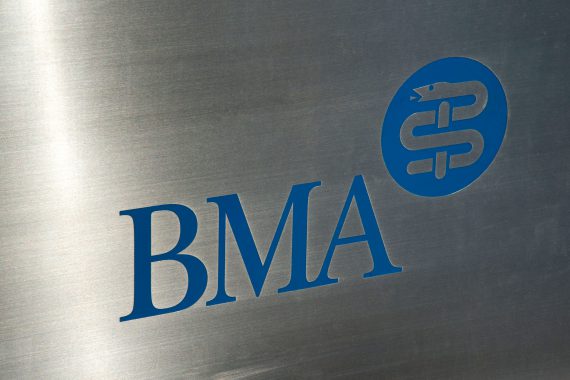LMCs vote in favour of BMA continuing to negotiate GP contracts amid concerns

The UK LMCs conference has voted almost unanimously in favour of the BMA’s GP Committee continuing to negotiate core GP contracts, as general practice commissioning is set to go through an overhaul over the next year.
The motion noted ‘legislative proposals’ in some UK nations which seek to reform the provision of GP contracts, including how they are held and funded, and comes as yesterday’s Queen’s Speech confirmed the Government’s intentions to legislate on NHS reforms in England.
Proposing that ‘GP core contracts in each nation remain nationally negotiated with GPC’, 94% of 206 LMC representatives voted the motion through.
Another part of the motion proposed that practices ‘remain the unit at which core contracts are negotiated’, amid moves for GPs to operate in wider entities such as PCNs and clusters, passing with 99% of the vote.
Devon LMC member Dr Rachel Ali, who presented the proposal, said: ‘Increasingly, as the suggestions on how our health services are going to be reorganised are coming through, we are seeing that there is a lot of discussion about what’s going to happen with acute trusts and with broader organisations, but very little mention of practices.’
According to Dr Ali, this is cause for ‘a great deal’ of concern.
She continued: ‘We need to know that when contracts are being negotiated, and when changes are being made to the health service, that they are being made by the people who have got the expertise to represent our profession, our practices and our teams.
‘That’s us – LMCs and GPC, and we need to stay in the driving seat to make sure we can look after the people who need us.’
Supporting the motion, Worcestershire and Herefordshire LMC member Dr Gillian Farmer said: ‘It’s now clear that within an ICS, all general practice enhanced service funding is up for grabs from other organisations and that our local enhanced service bundle is under threat. This pot of funding should be about supporting general practice sustainability.’
She added that to properly support secondary care and deliver bottom-up improvements for patients, the sector ‘will have to start having honest conversations within ICSs about the need to transfer resources from secondary care to primary care’, but added there is ‘no willingness’ for this and that ring-fenced funding is needed.
Further in favour of the motion, South Staffordshire LMC chair Dr Manu Agrawal said: ‘Since the introduction of PCNs, there has been a national mushrooming of CCGs and commissioning bodies to commission services from PCNs rather than from traditional general practice. It is now creeping into traditional services that were provided by practices, which is becoming an existential threat to GMS practices’.
GPC leaders also backed the motion, with GPC Scotland chair Dr Andrew Buist commenting: ‘I believe this motion strengthens our position. It doesn’t just reflect what’s going on in England. There have been suggestions in Scotland that our contract is not held with the health board, and that would be a change.’
The vote of confidence for the GPC comes despite LMCs voting yesterday to push the committee to publicise its voting behaviours, amid criticism that it has been ‘distant’ from LMCs and frontline GPs.
In February, the Government announced plans for ICSs to be given the statutory power to commission NHS services currently held by CCGs in England, as part of wider NHS reforms.
NHS England has told Pulse that it will continue to negotiate a national GP contract following the overhaul.
Motion in full
That conference notes legislative proposals in some of our home nations which seek to reform the provision of core GP contracts, including where they are held and how they are funded and mandates the GPC to ensure that:
- (i) GP core contracts in each nation remain nationally negotiated with GPC PASSED
- (ii) the GP practice remains the unit at which core contracts are negotiated ensuring practices are not forced to integrate into corporate entities with other practices or organisations without their specific agreement and consent PASSED
- (iii) GP contracts are funded from ring-fenced funds, with specific provision that they are excluded from being redirected to support secondary care or support overspends elsewhere in the system PASSED
- (iv) there is a requirement that all bodies commissioning health services have a legal requirement to consult appropriate local medical committees. PASSED
Source: BMA
Related Articles
READERS' COMMENTS [2]
Please note, only GPs are permitted to add comments to articles










then you idiots get what you deserve–wake up!!!
I would dearly love to know what the other 12 delegates voted for –
not their names, just their alternative suggestion???